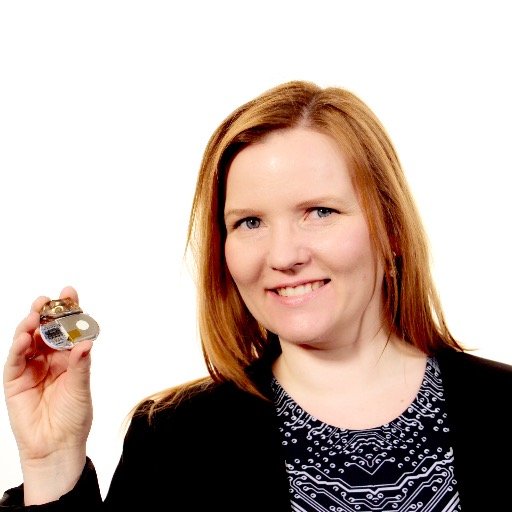
After a talk she held at #32c3, I asked for Marie Moe's help in shaping a frame of enquiry on Hacking and Making to meet one’s own care needs. The reason being that we both are part of a movement to make health- and social care accessible, open source, privacy-friendly and participatory.
It turns out that, when faced with care challenges, communities rise to meet them. By doing so, they step outside of our current paradigm, one of provision of care services by a combination of the state and private business. This changes the game completely to one of decentralization and reciprocity.
Initiatives such as Diy Orthodontics and Diabetes Pumps are just the tip of the iceberg. In Benin, Jean Paul Doussou has run an impressive grassroots initiative to improve cardiac health using a Facebook group and Edgeryders-like community management techniques. In Greece communities are going so far as to run a shadow zero-cash health care system. In Dorotea, a small village in mid-northern Sweden, citizens have squatted the hospital facilities and started running health services for locals on a voluntary basis . Everywhere we look we are seeing a lot of radical experimentation.
Which raises some questions…
- How do these initiatives manage to navigate the legal, administrative, and cultural obstacles to their widespread adoption?
- How do we ensure that the devices which keep us healthy are safe and that there is an acceptable social contract for the code that runs in our bodies?
- Do we even know what we mean when we talk about care?
These services and solutions often display an uncanny degree of efficiency. But they cannot easily be added to our existing care system. They are too strange: ad hoc, blurry at the edges, often existing in legal gray areas. Also many of them are small, very specific services run on volunteer basis. This has its challenges. One of which is providing continuity and coherence over a long periods of time as we learned from our delve into Stewardship.
Let’s take the example of Dementia.
The goal in Alzheimer’s disease treatment is rehabilitation. This requires a lot of patience- figuring out what can the person can’t do anymore, and identifying the right kind of tool to support them. If they have had a stroke and are weak on one side this may mean a cane, or a walker. But equally important, you also figure out what can the person still do, about 98 % of people “want to live at home with dementia, so the goal here is to maximize the person’s functioning independence and embed them in an environment that supports them.
Right now Edgeryders is pioneering a new initiative in which we design and test a community-driven model for social and health care. We are doing this together with a number of partners which include the City of Milan (they’ve been looking in this direction for some time now).
We start by finding and understanding some of the care services that communities are providing - right now to people that the state and private business have let down. We then ask how we, as societies, would need to change for them to continue to exist, and to scale where possible. We are discussing, among other things:
- The economic truism that "health care costs can only go up, never down", and why that's a fallacy.
- The difficult relationship between care giving and management culture.
- Greece's shadow health care service. 68 clinics with no legal status, don't accept money and provide free health care to people out the public health care system.
- A makerspace in England with a diverse user base, where people find meaning (and income) through engaging with open technologies.
- a decentralized 9-1-1 alternative built for and by people who are not well served by existing emergency response services.
- How we (you and me and everyone we know) can help tackle some of the messy challenges involved
We cannot, and should not, do this alone. Edgeryders mission is to complement, no compete with, existing initiatives and people doing important work. So we are supporting busy people active in community care space to join this common conversation. We fund people running existing projects to monitor themselves and share their knowledge and learn from each other. If Helliniko had assesment that health economist could read they could have reached goal of influencing how public health system works. Their experience would be more legible and helpful to others who wish to set up similar initiatives elsewhere. Possibly even influence policymakers to change disfunctional elements in health- and social care systems: in Greece and beyond.
Want to get involved? Check out the Op3n Fellowship Program at http://bit.ly/1SqgtX2.
Don’t hesitate to ask questions or for help with developing your contribution - it’s what we are here for. You can tweet @edgeryders or write to community@edgeryders.eu (please use hashtag op3ncare so we know what it’s about).
More info about the research project http://bit.ly/26JAEZv